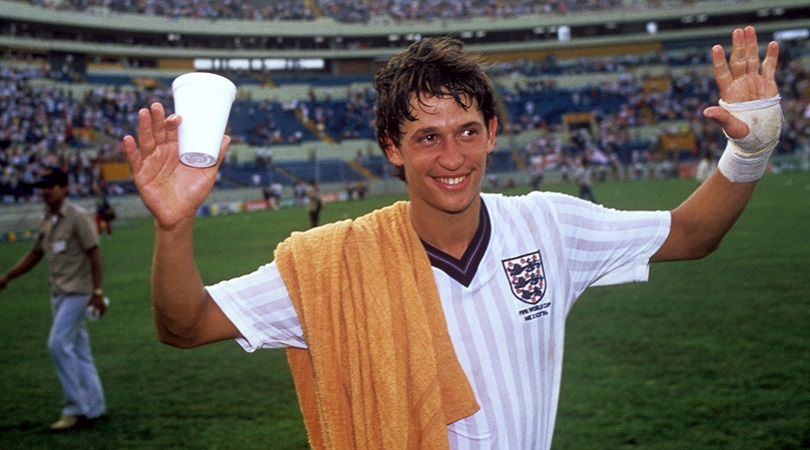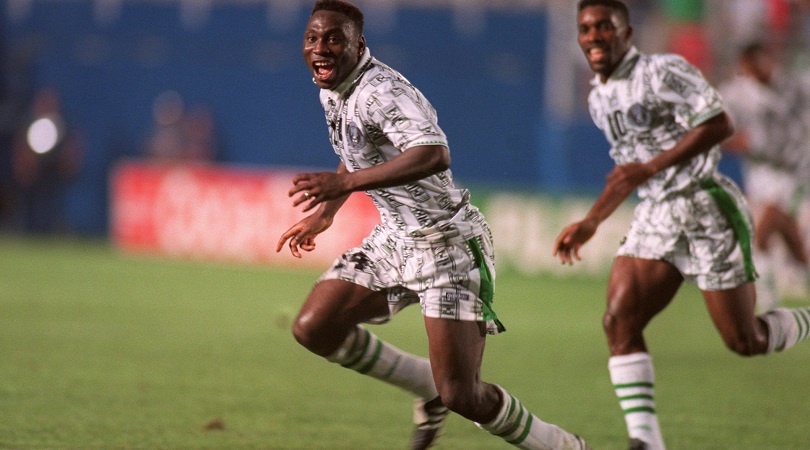
Daniel Amokachi (Nigeria, 1994)
Angling for a move away from Club Brugge (“It’s a bit of a backwater out here,” he said), Nigerian striker Amokachi – nicknamed ‘The Bull’ – impressed onlookers during the 1994 World Cup. After netting a fine goal against Bulgaria, he practically pulled the net off its stanchion with a stupendous goal against Greece.
Although Nigeria later crashed out in the second round to eventual finalists Italy, Amokachi earned himself a £3m move to Everton, where he won the FA Cup in his first season.
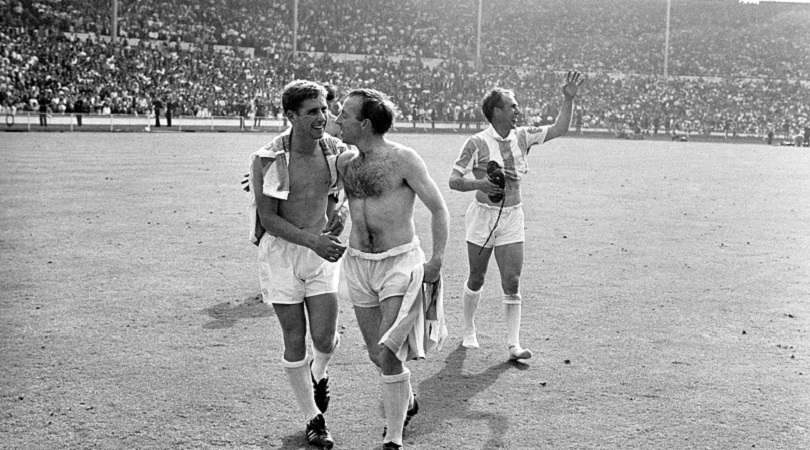
Alan Ball (England, 1966)
Even though the diminutive Blackpool midfielder had been given his international debut by manager Alf Ramsey a year earlier, Ball (left) admitted: “I never, ever took my place in the team for granted. I always worried that someone would come in and take everything away from me.”
At 21, Ball was the youngest member of Ramsey’s 22-man squad. But his industrious displays for hosts England in the 1966 tournament, in which he showed his versatility and energy by flitting between central midfield and wide positions in Ramsey's wingless 4-3-3, made him one of the players of the tournament; in August, he moved for £112,000 to Everton, the FA Cup holders and regular top-five finishers.
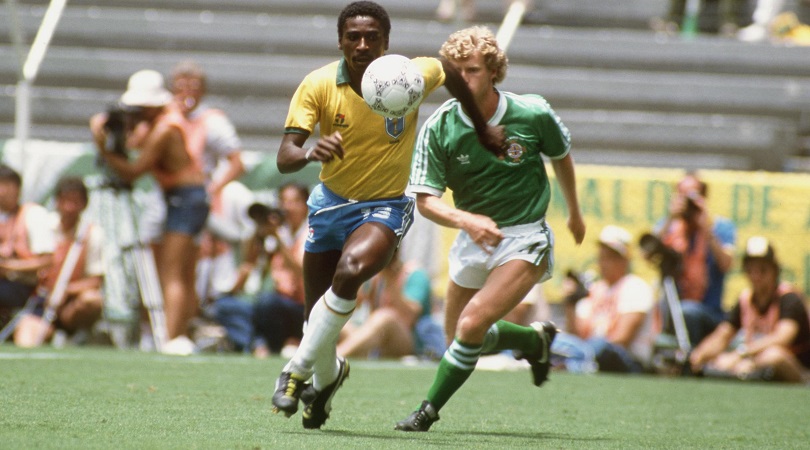
Josimar (Brazil, 1986)
Uncapped right-back Josimar wasn't even in the Panini sticker album for Mexico 86. Yet after Leandro pulled out, the 25-year-old (whose Botafogo contract had expired a few weeks earlier) was drafted into Brazil's squad – and Edson's injury against Algeria meant Josimar started against Northern Ireland.
He duly whacked a stupendous 30-yarder past Pat Jennings, and four days later slalomed his way through the Polish defence and thundered home another absurdly fine goal from a ridiculous angle. Across the globe, pitches and playgrounds resounded to self-commentated "JOSIMAR!!" efforts flying akimbo - while back home, Botafogo quickly renewed that contract.
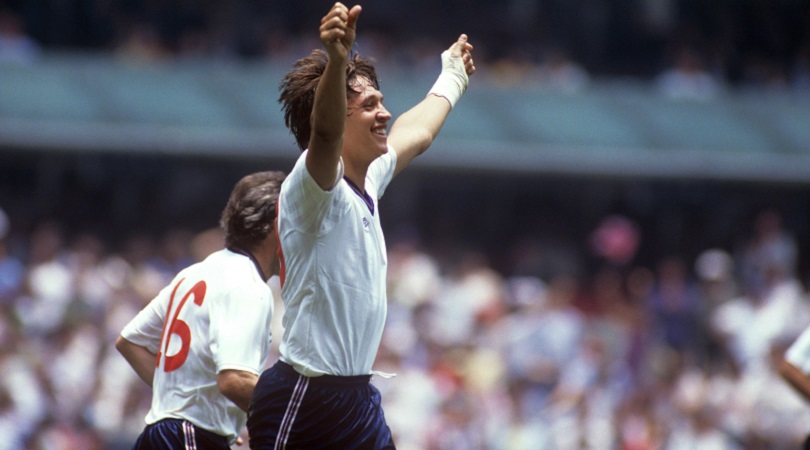
Gary Lineker (England, 1986)
The ex-Leicester striker was hardly unknown before Mexico 86, having plundered 40 goals for league runners-up Everton in the 1985/86 season. But he admits: “That World Cup, and the Poland game, changed my life.”
After group games against Portugal and Morocco yielded one point and no goals, England appeared destined for an early exit – and Lineker the chop, having scored in just three of his first 15 games. But Bobby Robson dropped Mark Hateley for Peter Beardsley, and Lineker netted a hat-trick against Poland in blazing 40-degree heat to qualify England for the knockout stage, where he would grab three more to win the Golden Boot.
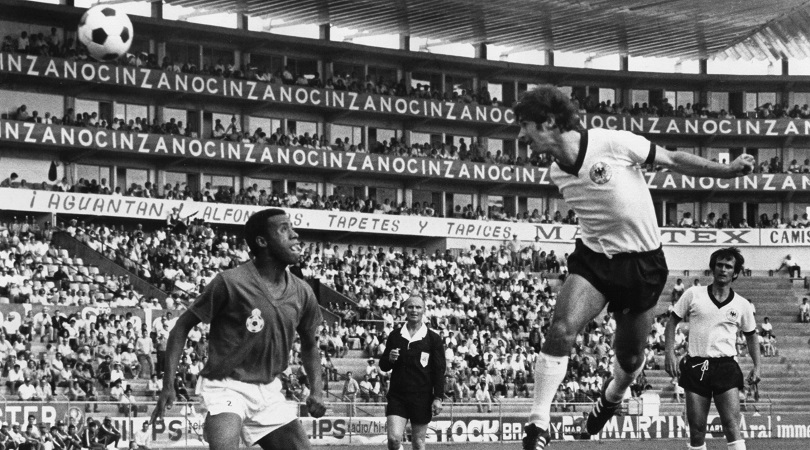
Gerd Muller (West Germany, 1970)
The prolific German hitman had been plundering goals for club (Bayern Munich) and country since the mid-60s, but went to Mexico on a four-game goalless run, with just one in the last six. Was he truly world-class? Er, yes.
He scored the winner against Morocco, three against Bulgaria, three against Peru, the quarter-final winner against England and two in the semi-final against Italy, each time watching as his defence almost immediately conceded again. His remarkable 10-goal haul elevated the 25-year-old to superstar status; four years later he would score the World Cup winner then retire from international duty – at 29.
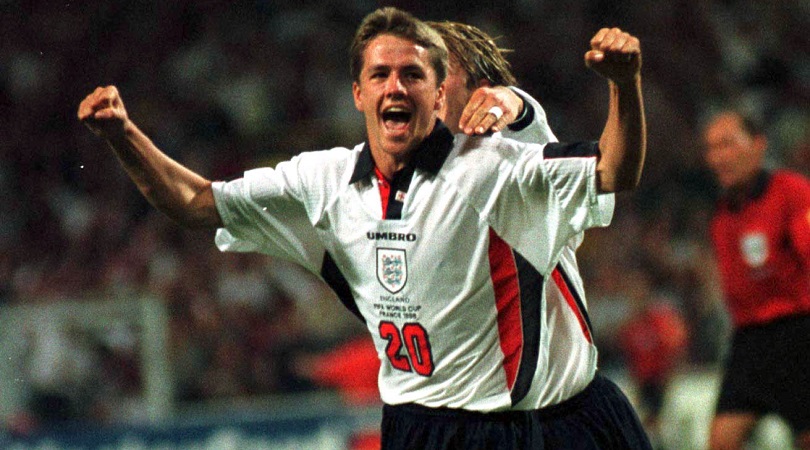
Michael Owen (England, 1998)
The early months of 1998 were exciting times for Michael Owen. The Liverpool sensation won a share of the Premier League Golden Boot, plus the PFA Young Player of the Year, and won his international debut in February – four months before the World Cup began in France.
England manager Glenn Hoddle warned of potential burnout, and preferred to use him as a substitute in the opening game against Tunisia. But Owen scored after coming on against Romania and again in the last 16, firing home a sensational goal against Argentina to give his side a 2-1 lead. Even though England lost on penalties, Owen - who converted his spot-kick in the shootout - was now a bona fide superstar.
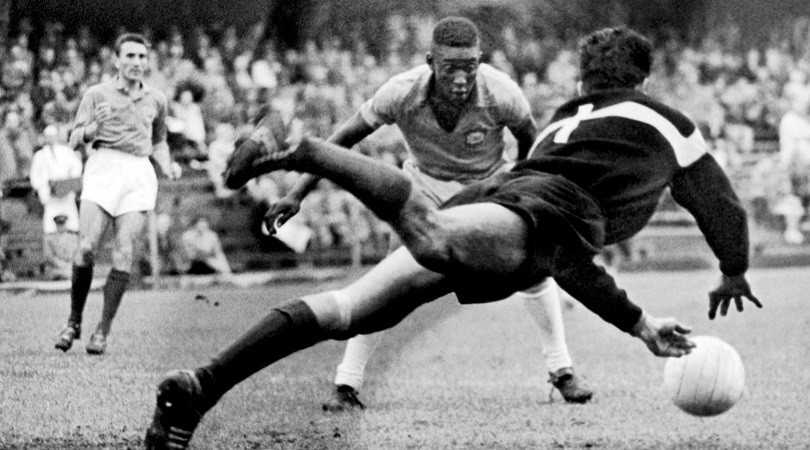
Pele (Brazil, 1958)
Aged just 17, the prodigiously gifted Santos forward claimed he “was unable to sleep due to the excitement” after being picked for Brazil's 1958 World Cup squad. A knee injury threatened to sideline him, but he returned for the third group stage match against Russia and then scored a lovely winner against Wales in the quarter-finals.
It was his breathtaking hat-trick against a fine French side in the semi-finals that catapulted him to superstar status, though. Pele followed that up with a brace in the final against hosts Sweden in Brazil’s 5-2 win, announcing his genius in the best way possible.
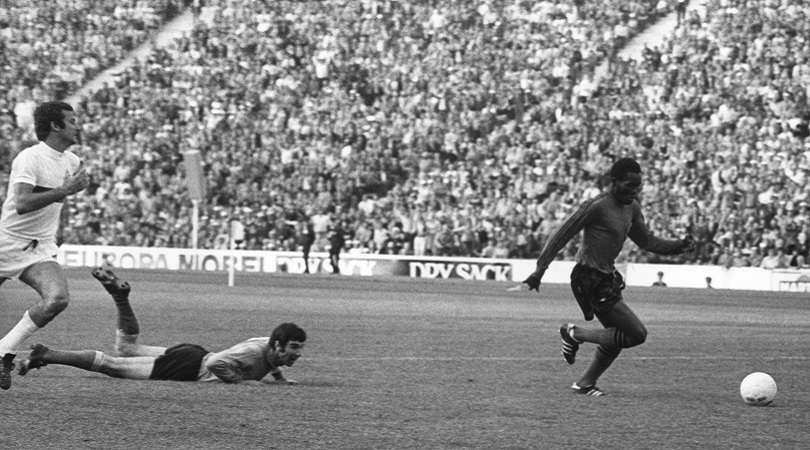
Emmanuel Sanon (Haiti, 1974)
‘Manno’ may have been a national hero in his native Haiti, but it was his form at the 1974 World Cup which elevated his status beyond his homeland. In Haiti’s group match against Italy – who hadn’t conceded a goal in 19 games – the blisteringly quick Sanon surged past the Azzurri's static defence, rounded Dino Zoff and gave his country a shock lead.
Italy fought back to win 3-1, and Haiti were eliminated at the group stage, but Sanon's second World Cup goal against Argentina made European scouts take notice. It earned him a transfer to Belgian top-tier side Beerschot, and later to the burgeoning North American Soccer League.
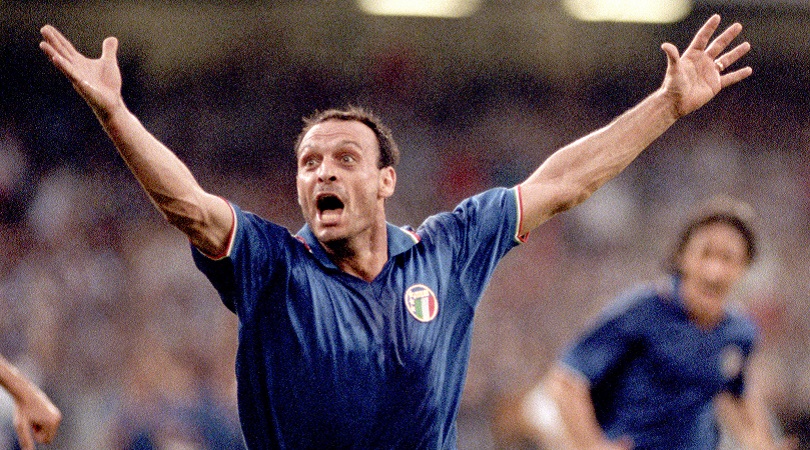
Salvatore Schillaci (Italy, 1990)
The prematurely balding, diminutive striker Schillaci had plugged away at Messina for years, before earning a big-money move to Juventus in 1989 and scoring 15 goals in his debut season. Even so, he admitted before Italia ’90 that he was “Italy’s fifth-choice striker”.
A goal in Italy’s first match helped him gradually climb up the pecking order, with Schillaci included in the starting XI in the hosts’ final group game against Czechoslovakia, before plundering further strikes against Uruguay, Ireland and Argentina as he secured the Golden Boot and Italy reached the semi-finals.
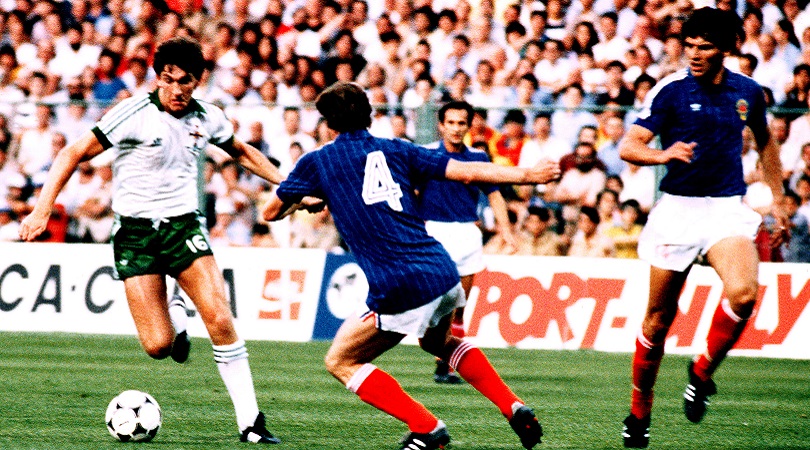
Norman Whiteside (Northern Ireland, 1982)
‘Stormin' Norman’ had only played two first-team matches for Manchester United before the 1982 World Cup, but the buzz around the Ulsterman was sensational. The midfielder broke Pele’s record as the youngest ever World Cup player when he made his bow aged 17 years and 41 days.
He was yellow-carded on his debut against Yugoslavia, but his tireless shift against Spain in a 1-0 win helped Billy Bingham’s men progress to the next phase, where Whiteside showed his versatility by playing left-midfield in a 2-2 draw with Austria. Northern Ireland crashed out of the tournament after losing 4-1 to France, but Pele claimed Whiteside had “the world at his feet”.
Greg Lea is a freelance football journalist who's filled in wherever FourFourTwo needs him since 2014. He became a Crystal Palace fan after watching a 1-0 loss to Port Vale in 1998, and once got on the scoresheet in a primary school game against Wilfried Zaha's Whitehorse Manor (an own goal in an 8-0 defeat).
 Join The Club
Join The Club










